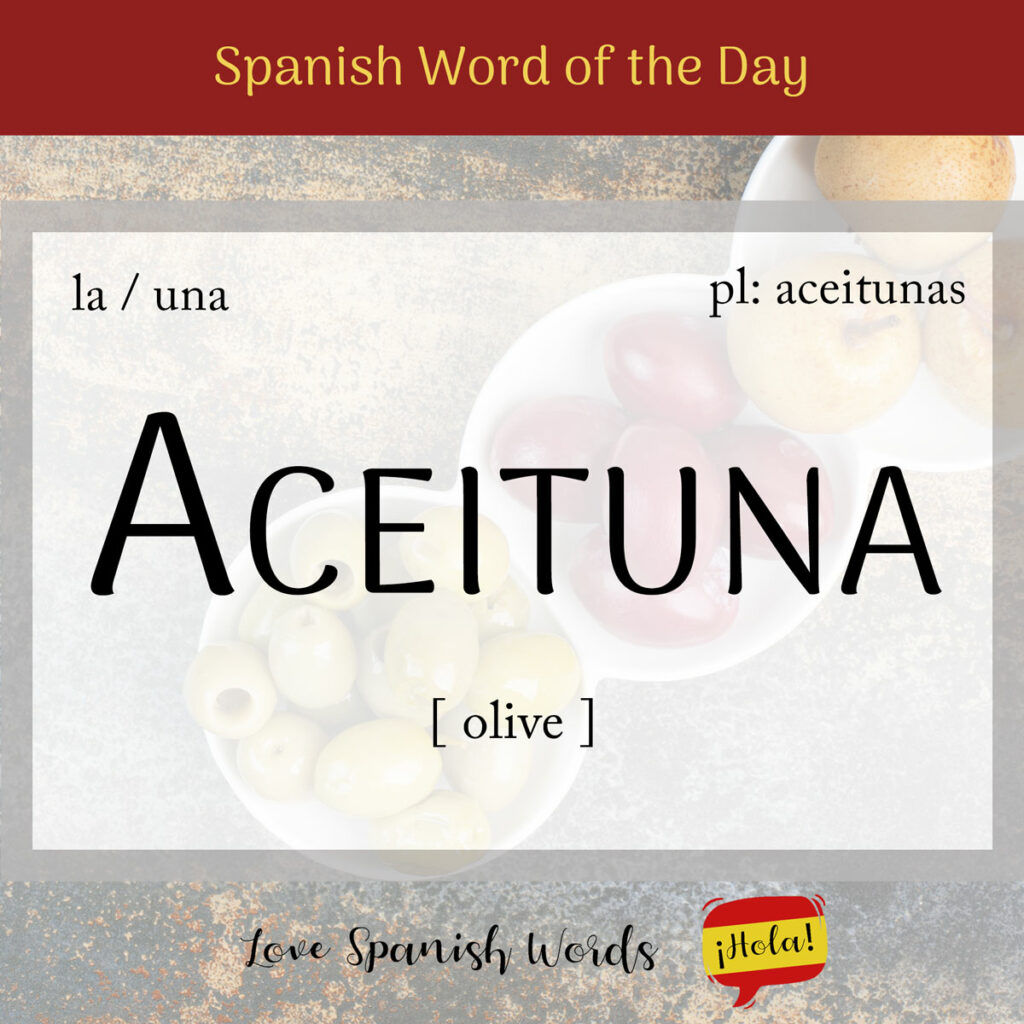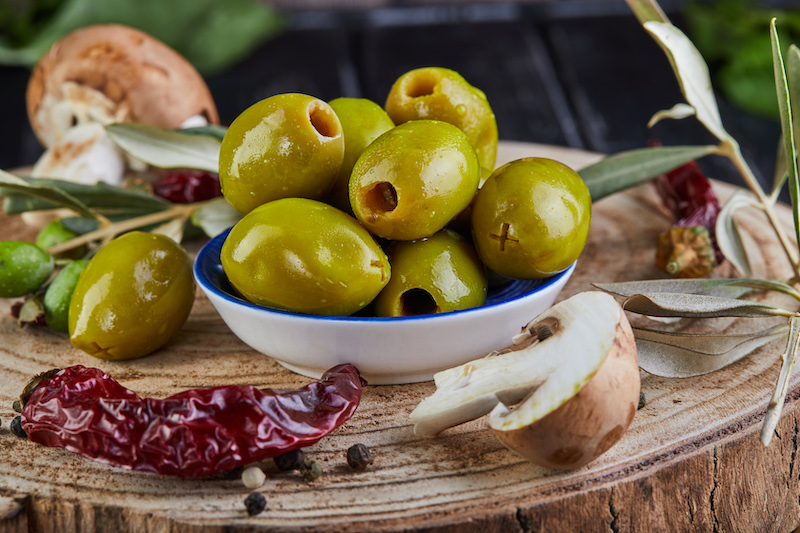The fruit of the olive tree is known as the aceituna. The word aceituna comes from the Hispanic Arabic word az-zaytúna, which derives from the classical Arabic اَلزَّيْتُونَة (zaytūnah), which came in turn from the ancient Aramaic, zaytūnā. Olive oil was called az-zait.
Latin American Pronunciation
European Pronunciation

Aceituna is a feminine noun and takes the following definite and indefinite articles:
- la aceituna = the olive
- las aceitunas = the olives
- una aceituna = an olive
- unas aceitunas = some olives

It is important to note that occasionally you can hear the word oliva used in place of aceituna to mean the fruit of the olive tree. This can be a regional thing within Spain itself and sometimes the distinction would be that the aceituna is the fruit used to make the oil whereas oliva would be the fruit eaten at the table.
Aceituna is used widely to mean both and so it is safest to use this word.
¿Cuándo es la cosecha de aceitunas?
When is the olive harvest?
With the olive tree being one of the most widely grown crops in most of Spain, as you can imagine there is a huge number of varieties available both for eating and for making olive oil. Below are some of the most commonly found:
- aceituna negra = black/ripe olive
- aceituna verde = green olive
- aceituna de mesa/verdeo = table olive
- aceituna sin hueso = pitted olive
- aceituna rellena = stuffed olive
- gordal sevillana = popular variety for eating, grown in Sevilla region
- manzanilla = popular variety for eating, grown widely in Andalucía

Common proverb using the word ‘aceituna’
Fortuna y aceituna, a veces mucha y a veces ninguna
Literal translation: fortune and olives, sometimes a lot and sometimes none
English meaning: This means that luck can come and go, sometimes you have good luck and sometimes none at all

